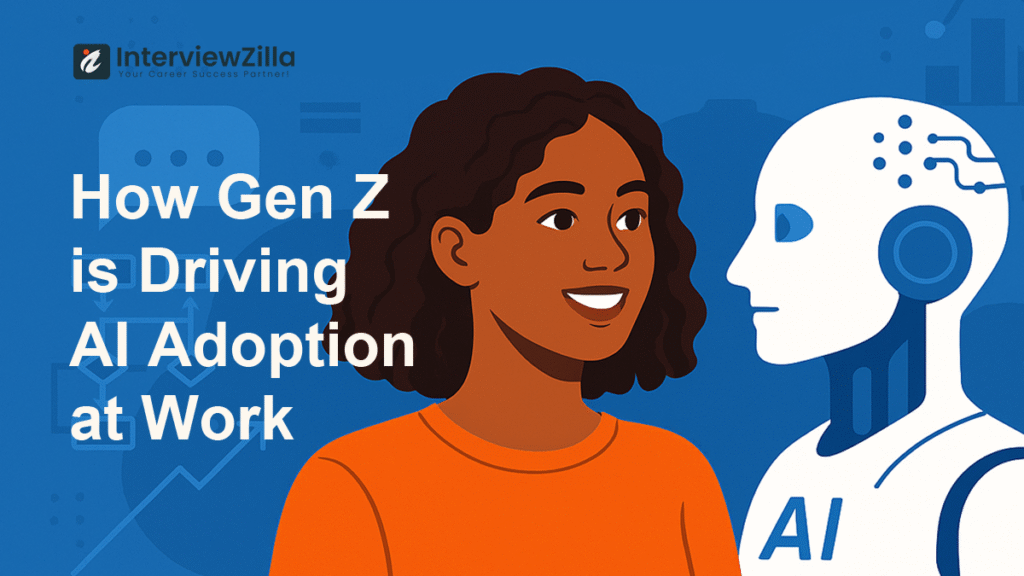Are you fascinated by Data and eager to become a Data Engineer?
In this comprehensive guide, we'll walk you through the steps to embark on your journey toward becoming a data engineer in 2024. From gaining the necessary skills to landing your first job, we've got you covered every step of the way.
Table of Content
Step 1: Understand the Role of a Data Engineer
In today's data-driven world, information is power. But raw data is rarely useful on its own. Enter the data engineer, the skilled professional who acts as the bridge between raw data and actionable insights.
What does a data engineer do?
Data engineers are responsible for the entire data lifecycle, from acquisition and transformation to storage and access. They wear many hats, including:
- Data architects: Designing and building the infrastructure for data pipelines, ensuring efficient and scalable data flow.
- Data wranglers: Cleaning, organizing, and structuring raw data to make it usable for analysis.
- Programmers: Developing and maintaining data pipelines and tools using programming languages like Python, SQL, and Java.
- Database administrators: Setting up and managing data warehouses and databases to store and access data efficiently.
- ETL developers: Designing and implementing Extract, Transform, Load (ETL) processes to move data between different systems.
- Cloud computing experts: Utilizing cloud platforms like AWS, Azure, and GCP for data storage, processing, and analytics.
Why are data engineers important?
Data engineers are crucial for any organization that wants to leverage the power of data for informed decision-making. They enable:
- Data-driven business insights: By making data readily available and accessible, they empower analysts and business users to uncover hidden patterns and trends.
- Improved operational efficiency: Streamlined data pipelines and efficient data storage lead to faster and more accurate insights, allowing organizations to optimize operations.
- Innovation and competitive advantage: Data-driven insights fuel innovation by helping businesses understand customer needs, develop new products, and stay ahead of the competition.
What skills does a data engineer need?
- Technical skills: Programming languages, databases, cloud platforms, ETL tools, data warehousing concepts.
- Problem-solving: Identifying and resolving data quality issues, designing efficient data pipelines.
- Analytical thinking: Understanding data structures, analyzing data patterns, drawing meaningful conclusions.
- Communication: Collaborating with data analysts, scientists, and business stakeholders.
- Attention to detail: Ensuring data accuracy and integrity throughout the data lifecycle.
The future of data engineering:
As data volumes continue to grow and data becomes even more critical, the demand for skilled data engineers will only increase. Emerging trends like big data, machine learning, and the Internet of Things (IoT) will create exciting new opportunities for data engineers to shape the future with their expertise.
Are you interested in becoming a data engineer?
If you have a passion for technology, problem-solving, and turning data into insights, then a career in data engineering could be a perfect fit. Consider pursuing relevant educational programs, certifications, and hands-on experience to build your skills and launch your data engineering journey.
Step 2: Gain the Necessary Skills
- Pursue a bachelor's degree in a relevant field like computer science, mathematics, or data analytics.
- Acquire proficiency in programming languages like Python and SQL, as well as familiarity with data processing frameworks like Apache Spark.
- Practice working with databases, both relational and NoSQL, and learn about data modeling and schema design.
Step 3: Build a Strong Foundation
- Take online courses or enroll in bootcamps focused on data engineering skills offered by platforms like Coursera, Udacity, or edX.
- Work on personal projects to apply your knowledge and showcase your skills to potential employers.
- Participate in internships or freelance projects to gain real-world experience and build your portfolio.
Step 4: Gain Practical Experience
- Seek out opportunities to work with real data in internships, part-time jobs, or volunteer positions.
- Collaborate with data scientists, analysts, and other professionals to understand different perspectives and gain practical insights into data engineering workflows.
- Continuously seek feedback and iterate on your projects to improve your skills and knowledge.
Step 5: Network and Stay Updated
- Attend industry events, conferences, and meetups to network with professionals in the field and stay updated on the latest trends and technologies.
- Join online communities and forums where you can connect with peers, ask questions, and share resources.
- Follow blogs, podcasts, and social media accounts dedicated to data engineering to stay informed about new tools, best practices, and job opportunities.
Step 6: Prepare for Data Engineer Interviews
- Practice technical interview questions related to data structures, algorithms, and data engineering concepts.
- Showcase your problem-solving skills and ability to communicate complex technical concepts clearly during interviews.
- Be prepared to discuss your projects, experiences, and contributions to the field of data engineering.
Step 7: Land Your First Job
- Tailor your resume and cover letter to highlight your relevant skills, experiences, and achievements in data engineering.
- Utilize online job boards, company career pages, and professional networking sites to search for job openings.
- Prepare for interviews by researching the company, understanding their data engineering needs, and demonstrating your enthusiasm and passion for the role.
Step 8: Continue Learning and Growing
- Stay curious and continue to learn new tools, technologies, and techniques in data engineering.
- Seek out opportunities for professional development, such as certifications, workshops, or advanced courses.
- Embrace challenges and opportunities for growth, and never stop striving to improve your skills and expertise as a data engineer.
By following this step-by-step guide, you can set yourself on the path to becoming a successful data engineer in 2024. With dedication, perseverance, and a passion for data, you'll be well-equipped to tackle the challenges and opportunities that lie ahead in this dynamic and rewarding field.
Frequently Asked Questions (FAQs)
1. Who is a Data Engineer?
A data engineer is an IT professional responsible for building, maintaining, and managing the infrastructure that allows data to be collected, processed, stored, and accessed for analysis. They act as the bridge between raw data and usable insights.
2. What is the need for a Data Engineer?
As data volumes and complexity grow exponentially, organizations need specialists to handle the technical aspects of data management. Data engineers ensure data is reliable, secure, and readily available for various applications, like machine learning and business intelligence.
3. What is Data Engineering?
Data engineering refers to the practices and technologies used to build and manage data pipelines, cloud storage, data platforms, and data models. It involves tasks like data extraction, transformation, loading (ETL), data warehousing, and real-time data processing.
4. What are the roles and responsibilities of a Data Engineer?
- Design and implement data pipelines
- Work with various data sources and formats
- Manage data warehouses and data lakes
- Develop and optimize data models
- Ensure data quality and security
- Collaborate with data analysts and scientists
- Stay updated on evolving technologies
5. Data Engineers vs. Data Scientists?
| Aspect | Data Engineers | Data Scientists |
|---|---|---|
| Primary Role | Build and maintain data infrastructure, | Analyze data to extract insights and build |
| develop data pipelines, and ensure data quality. | models for predictive analysis and optimization. | |
| Skillset | Proficient in programming languages (e.g., Python, | Strong background in statistics, mathematics, |
| SQL), database systems, ETL tools, and | and machine learning algorithms. | |
| distributed computing frameworks. | ||
| Typical Tasks | Designing and developing ETL pipelines, | Exploratory data analysis, statistical modeling, |
| managing databases, optimizing data systems. | machine learning model development. | |
| Focus | Focuses on data engineering, infrastructure, | Focuses on data analysis, statistical modeling, |
| and data processing. | and machine learning techniques. | |
| Tools & Technologies | Apache Spark, Hadoop, SQL databases, ETL tools, | Python, R, TensorFlow, scikit-learn, pandas, |
| cloud platforms (e.g., AWS, Azure). | Jupyter Notebooks. | |
| Output | Provides clean, structured data for analysis and | Generates insights, predictions, and visualizations |
| decision-making. | to support business decisions. | |
| Goal | Ensure data availability, reliability, and | Extract actionable insights from data to solve |
| accessibility for analysis. | business problems and drive innovation. | |
| Collaboration | Collaborates with data scientists, analysts, | Collaborates with data engineers, domain experts, |
| and business stakeholders. | and business stakeholders. | |
| Career Path | Progression may lead to roles like Senior Data | Progression may lead to roles like Senior Data |
| Engineer, Data Architect, or Data Engineering | Scientist, Machine Learning Engineer, or Data | |
| Manager. | Science Manager. |
6. Skills required to become a Data Engineer?
- Programming: Python, Java, Scala
- Databases: SQL, NoSQL databases
- Big Data: Hadoop, Spark, cloud platforms (AWS, Azure, GCP)
- Data Warehousing: Data warehousing concepts, data modeling
- Version Control: Git
- Cloud Computing: Cloud fundamentals, platform-specific tools
- Communication & Collaboration: Teamwork, problem-solving
7. Data Engineer Salary Around the World?
| Country | Average Salary (USD) | Currency | Note |
|---|---|---|---|
| United States | $140,000 | USD | Varies greatly by location and experience |
| United Kingdom | £70,000 | GBP | Converted to USD using average exchange rate |
| Germany | €75,000 | EUR | Converted to USD using average exchange rate |
| Canada | $90,000 | CAD | Converted to USD using average exchange rate |
| Australia | A$120,000 | AUD | Converted to USD using average exchange rate |
| India | ₹75,00,000 | INR | Converted to USD using average exchange rate, high variation based on experience and city |
| Singapore | S$100,000 | SGD | Converted to USD using average exchange rate |
| United Arab Emirates (UAE) | AED 350,000 | AED | Converted to USD using average exchange rate, can be higher in tech hubs like Dubai |
| Saudi Arabia | SAR 300,000 | SAR | Converted to USD using average exchange rate, can be higher in tech hubs like Riyadh |
| China | ¥600,000 | CNY | Converted to USD using average exchange rate, varies based on city and experience |
| Brazil | R$350,000 | BRL | Converted to USD using average exchange rate |
| South Africa | ZAR 800,000 | ZAR | Converted to USD using average exchange rate |
| Nigeria | ₦15,000,000 | NGN | Converted to USD using average exchange rate |
| Kenya | Ksh 1,500,000 | KES | Converted to USD using average exchange rate |
| France | €65,000 | EUR | Converted to USD using average exchange rate |
Notes:
- Salaries are estimates and can vary significantly based on experience, location, industry, company size, and specific skills.
- Currency conversions are based on average exchange rates and may not reflect actual fluctuations.
- Gulf region salaries are often higher due to the demand for specialized skills and the cost of living.
I hope this information is helpful!
8. Why you should become a Data Engineer (Top 5 Reasons)?
- High demand and increasing salaries: Data engineers are in high demand across industries, leading to attractive career opportunities and salaries.
- Intellectually stimulating work: You'll constantly learn new technologies and solve complex problems, making it a stimulating and rewarding career.
- Make an impact with data: Your work directly contributes to data-driven decision-making, impacting businesses and society.
- Career flexibility: Data engineering skills are versatile and can be applied in various industries and projects.
- Job security: With the ever-growing importance of data, data engineers are unlikely to face job insecurity in the foreseeable future.
9. What are the biggest challenges in becoming a data engineer?
- Keeping up with the ever-changing landscape of technologies and tools.
- Finding relevant projects and experience to build your portfolio.
- Standing out in a competitive job market.
10. What resources are available to learn data engineering skills?
- Online courses (Coursera, Edx, Udemy)
- Bootcamps
- Books and technical blogs
- Open-source projects and competitions
- Online communities and forums
Click here for more related topics.
Click here to know more about Data Engineering.


